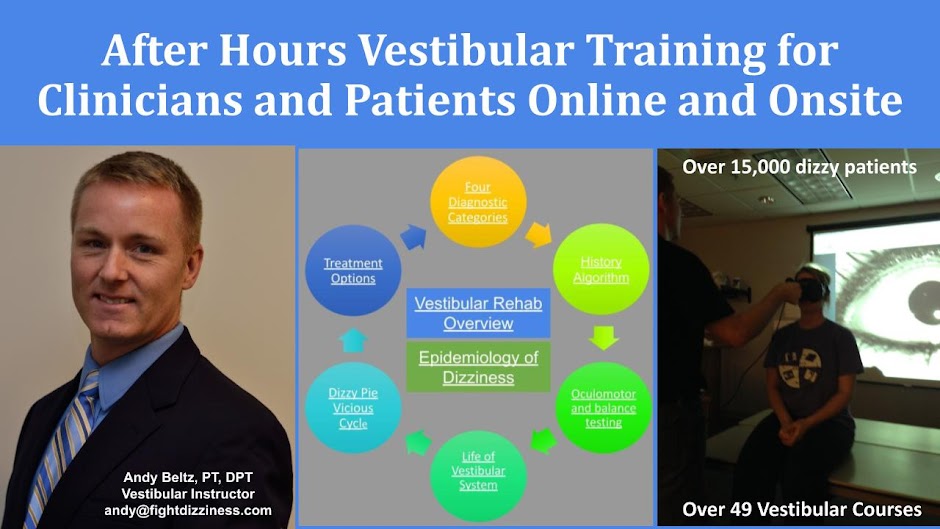Just like frozen shoulder occurs in stages (freezing, frozen and thawing), I believe some forms of BPPV occur in stages. Stages for some forms of BPPV seem to be dumping, dumped and recovery. Based upon what I see in the clinic, timing of when clients receive repositioning treatments seems to impact the success of the maneuvers for some individuals. I believe some forms of BPPV suddenly occur. In other words, if 100,000 pieces of otoconia are going to fall out, they all fall out at once. These clients seem to reposition fairly easily. I believe there are others who dump a few thousand out every day or week for a period of time. If we try to reposition otoconia when the person is in the dumping phase, we will need to continue repositioning periodically until the client reaches the dumped or recovery phase. I believe the dumping stage represents BPPV at an unstable level.
Many forms of vestibular dysfunction seem to occur in stages. Depending upon whether or not vestibular rehab works will depend upon which stage the individual is in.

Interesting and good to know. Thanks for doing such a great job in keeping the Aultman team educated on such a complex issue. We appreciate it!
ReplyDeleteFrozen shoulder, also known as adhesive capsulitis, is a common condition in which the articular shoulder capsule swells and stiffens, restricting its mobility. The term frozen shoulder is often used incorrectly for arthritis, even though the two conditions are unrelated. Frozen shoulder refers specifically to the shoulder joint, while arthritis may refer to other/multiple joints. Dr. Sonu Ahluwalia MD, Double board-certified in orthopedic surgery and sports medicine states that The American Academy of Orthopedic Surgeons (AAOS) reports that adhesive capsulitis, commonly referred to as frozen shoulder occurs in about 2% of the general population. It most commonly affects people between the ages of 40 and 60, and occurs in women more often than men. Learn more from him get to know the treatment for your frozen shoulder. Thanks
ReplyDelete